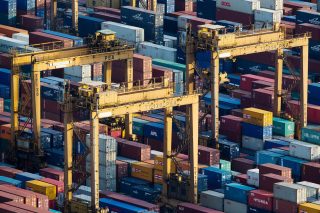The foreign exchange market is one of the most volatile. Currency prices can fluctuate wildly over a given period, which makes it hard to predict what happens next.
Overanalysing the market is never a good thing. This can lead to indecision and missed opportunities. It can also lead to losses. Experienced traders use many technical tools in their decision-making process. These are readily available in the MetaTrader 4 platform, but there are a number of underlying factors you should also be aware of. In this article, we are going to look at three of them.
Economic Indicators
The state of a country’s economy has a direct effect on its currency. For example, if an economy is heading into a recession, the price of its currency will be in decline. If a country’s economy is strong, the value of its currency will rise.
Forex traders should always pay close attention to economic indicators. These are statistical measures of a country’s economic activity. Change in GDP is the most important measure. Others include the Consumer Price Index, which measures inflation, followed by current interest rates, the unemployment rate, and income and wages.
Leading economic indicators predict future economic health. Lagging indicators lag behind but can confirm leading indicators. Coincident economic indicators offer insights into the current state of the economy.
Interest Rates
There is a direct correlation between interest rates and currency prices. For example, when the Bank of England voted to hike the UK base rate from 0.5% to 0.75%, GBP fell against the USD and the EUR an hour after the decision was announced. These indicated forex traders were not convinced by Mark Carney’s strategy speech.
Interestingly, the opposite is normally true. In many cases, when a bank signals an interest rate rise, it’s because inflation is creeping up and the economy is in danger of overheating. In turn, currency prices often rise in response.
The International Fisher effect predicts how much the spot currency exchange rate will change in response to the adjustment in interest rates. Some forex traders use this to build their trading strategies, but as we have already noted, it isn’t cast in stone.
Politics
Politics and forex are inextricably linked. When one area is in turmoil, it inevitably affects the other. Brexit is a prime example of just how badly a political storm can affect currency rates.
When the UK public voted to leave the EU, GBP fell by 19%, as forex traders responded to the news by selling off GBP. The morning after the referendum, GBP had sunk to the lowest point since 1985. In July 2018, the pound once again took a hit against the USD when President Trump criticized Theresa May’s Brexit policy.
This all goes to show much political upheaval affects currency prices. It’s worth paying close attention to politics when you trade forex. Read the news, watch out for Trump’s incendiary tweets, and you won’t be caught on the hop.
Forex traders can’t always anticipate a currency spike or crash, but you can use key indicators to position yourself in the market.








